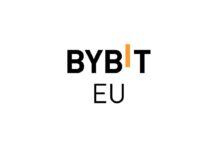
Asked if BTCC had received direct pressure on outflows, CEO Bobby Lee, who founded BTCC in 2011, said: “No. Not as of yet… Nothing verbal or written to us.”
In Beijing, the PBOC told two of China’s other big bitcoin exchanges, Huobi and OKCoin, not to mention the depreciating yuan when advertising their platforms, the influential news outlet Caixin said, citing people familiar with the meeting.
Get Data Sheet, Fortune’s technology newsletter
Star Xu, CEO and founder of OKCoin, confirmed there had been a meeting of the PBOC and leading bitcoin exchanges on Friday to discuss the operation of trading platforms.
“The industry can benefit from balanced, risk-based regulation and/or oversight, and we look forward to further constructive discussions with the regulators and industry participants,” Xu told Reuters in an emailed comment.
Huobi’s chief operating officer Zhu Jiawei said in an emailed response to Reuters queries that Huobi plans to work with other bitcoin firms to establish an alliance and rules to self-govern the industry.
While it’s possible to buy bitcoin with yuan and then sell it abroad for a foreign currency, BTCC’s Lee said “to be honest, not many” people were doing it because of the cost.
The renminbi price of bitcoin carries a premium to the price in other currencies, he noted. In addition, buy or sell orders in the 100,000 yuan ($14,423) to 1 million yuan ($144,233) range, and up, would influence the bitcoin spot price and affect the transaction.
“For that range, you’re not going to be able to do it at a good rate. You’re going to lose 10% of your money,” Lee said. “Maybe the individual household might buy 20,000 more dollars worth of bitcoin than their $50,000 (forex) quota, but that’s a drop in the bucket.”
Still, Lee said various indicators, like active trading accounts, new users, actual deposits and withdrawals, were “very active” in China, and some key BTCC metrics were at “all-time highs,” though he declined to be more specific.
NOT LEGAL TENDER
Bitcoin is not regulated in China, but the PBOC has declared it is not legal tender, and is instead a “virtual good,” Lee said. That puts it in the same category as other goods.
“If I pack a suitcase and take a plane to the United States, do the clothes, does the computer in my suitcase, does the watch I wear count towards capital flight?” he said. “Where do you draw the line?”
He said no new or planned rules regarding bitcoin were discussed in the latest meeting with the PBOC, and he estimates it will be two to three years before China regulates bitcoin.
In a statement on its website, BTCC, which calls itself the world’s longest running bitcoin exchange, said it regularly meets with the PBOC and “work(s) closely with them to ensure that we are operating in accordance with the laws and regulations of China.”
Exchanges in China say they account for more than 90% of global bitcoin trading, which would help explain why a shift in Chinese demand would sharply affect the price.
But many bitcoin experts say Chinese exchanges overstate their volumes in the digital currency, and attribute sharp moves to speculation by, for example, U.S.-based hedge funds.
[newsletter_form lists="1"]











